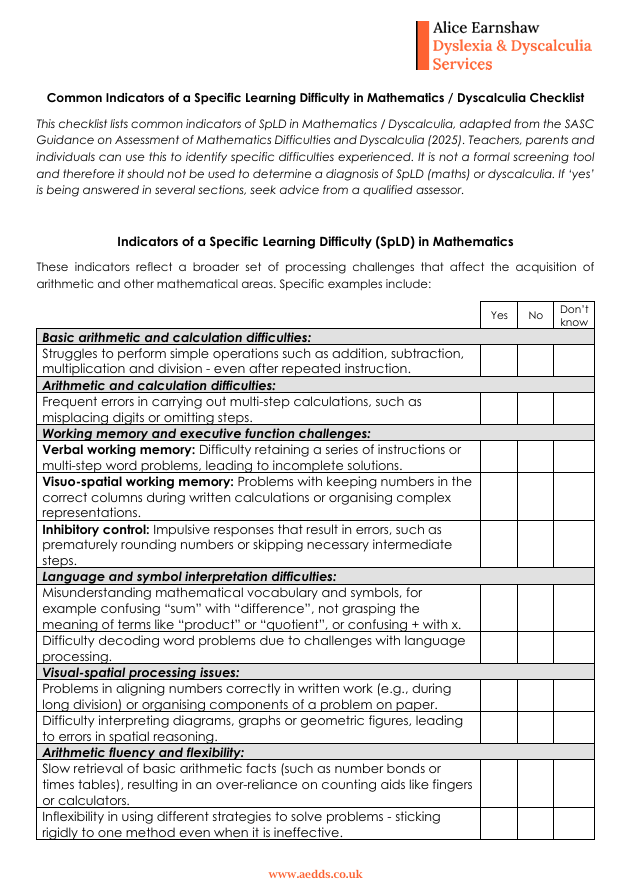What is Dyscalculia?
Dyscalculia is a type of specific learning difficulty in mathematics (SpLD in Maths). A SpLD in Maths is a set of processing difficulties that impact the acquisition of arithmetic and other areas of mathematics. In dyscalculia there is a pronounced and persistent difficulty, particularly with numerical magnitude processing. This relates to naming numbers, ordering and comparing physical quantities and numbers, estimation and understanding place value.
A SpLD in maths presents equally debilitating challenges due to other underlying processing difficulties such as language processing (hindering the comprehension of word problems and math instructions), executive function (problems with verbal and visuo-spatial working memory or inhibitory control) and visual-spatial processing difficulties (impacting the understanding of geometric relationships and aligning numbers). To learn more about SpLD in maths and dyscalculia, read my blog or read the full definition on the Dyscalculia Network’s website https://dyscalculianetwork.com/new-dyscalculia-guidance-sasc-2025. If you answer ‘yes’ to any of these, please get in touch to discuss your concerns.What are the indicators of Dyscalculia?
There are many indicators of dyscalculia because it affects a diverse range of areas. Some of them can also be indicators of other SpLDs, such as dyslexia, ADHD or DCD (dyspraxia). These are not included in the list below, but include areas such as poor spatial skills, difficulty reading the time, poor setting out on a page, difficulty in estimation and being slow to respond.
 ▶(adapted from Chinn, 2020; Kelly, 2020)
▶(adapted from Chinn, 2020; Kelly, 2020)
These questions can be used to consider whether you, your child or a pupil you teach has maths difficulties. If you answer ‘yes’ to any of these, please get in touch to discuss how I can help you to support yourself or the child/young person.
Remember that even these maths difficulties can be caused by other issues such as processing speed, working memory, medical conditions (e.g. epilepsy, foetal alcohol syndrome), gaps in education, traumatic educational experiences or maths anxiety. So, you can begin to see why dyscalculia is difficult to diagnose and why initial conversations are so important.